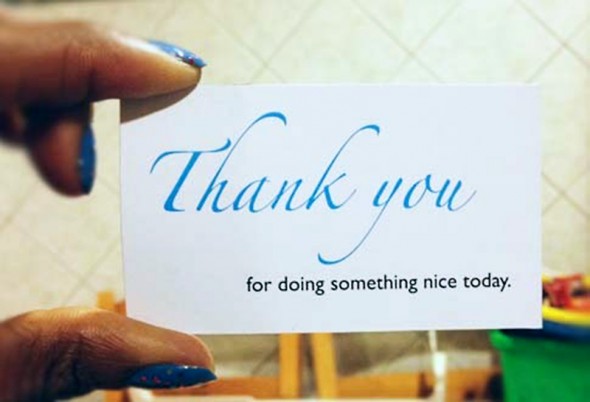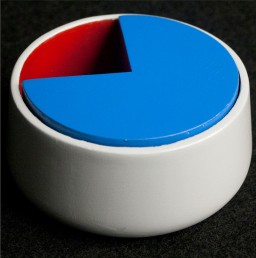Design students launch products on Kickstarter
A stylish, lightweight bottle opener that slides into your wallet like a credit card. Measuring cups that visually teach kids about fractions. A reusable thank-you card for people who commit random acts of kindness.
Design students in Bruce Tharp’s class on entrepreneurial product development have launched campaigns for these and other ideas on the crowd-funding site Kickstarter.
Students sought contributions beginning at $1 and offered incentives like the product or a prototype.
Tharp, associate professor of industrial design, required the Kickstarter launch to demonstrate the designer-to-consumer approach as an alternative to business-to-consumer work.
“The focus is on how to be an entrepreneur on the side, either leveraging the Internet to run their venture or through product licensing,” he said.
“Students were both excited and nervous. Excited because it was real-world and product development, as opposed to product design. Nervous because they were required to make their projects public.”
Blessing Okere found Kickstarter success with her pocket-sized “Simple Thank You Card,” ending her campaign with more than $1,000 toward her Jan. 1 goal of $600.
She suggests that buyers keep the cards on hand to give to someone who holds a door open, gives up a seat on the train or does any small kindness that may be overlooked. The card asks the recipient to pass it to another do-gooder, and so on.
“The more those good deeds go unnoticed, the less likely they are to happen,” she said in her Kickstarter video.
“’Thank you’ can change someone’s mood, change someone’s day.”
The Kickstarter campaign continues until Jan. 25 for the four-piece, multicolored plastic KidCup by Emily Michka and Bryan Zoleta. As of Jan. 14, they had less than $3,000 towards their $36,000 goal.
They designed fractional pie-shaped cups, marked inside and out, that fit inside the whole cup for easy understanding, “involving children in the food-making process (to) establish healthier eating habits,” the designers wrote on their page, which includes kid-friendly recipes.
Students were required to have their project approved by Kickstarter, but did not have to follow through on fundraising and production. Many deactivated their projects, but may reactivate them in May, Tharp said.
Other projects included a natural rubber meditation mat, a modular desk organizer, a steel desk lamp that could be flat-packed for shipping, a wine rack shaped like a double helix, pet bowls with fluted rims, a tie clip that holds a Misfit Shine (a device that tracks physical activity) and a Beyoncé dancing wall clock.
“Next year, I may have the project run into the following semester,” Tharp said.
“It’s a lot to figure out for the first time in just one semester, especially when there is money on the line and they could potentially lose money on a project.”


